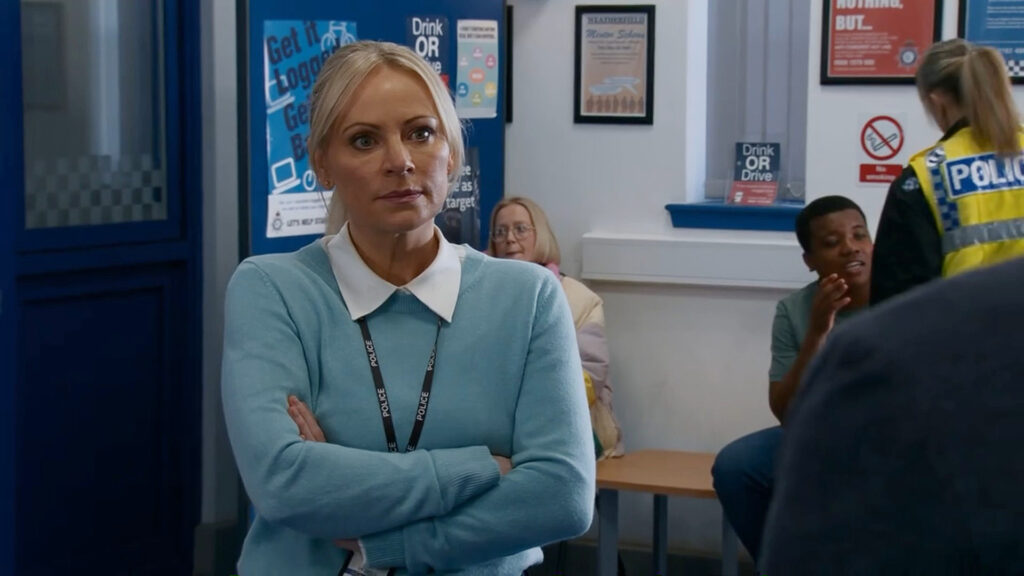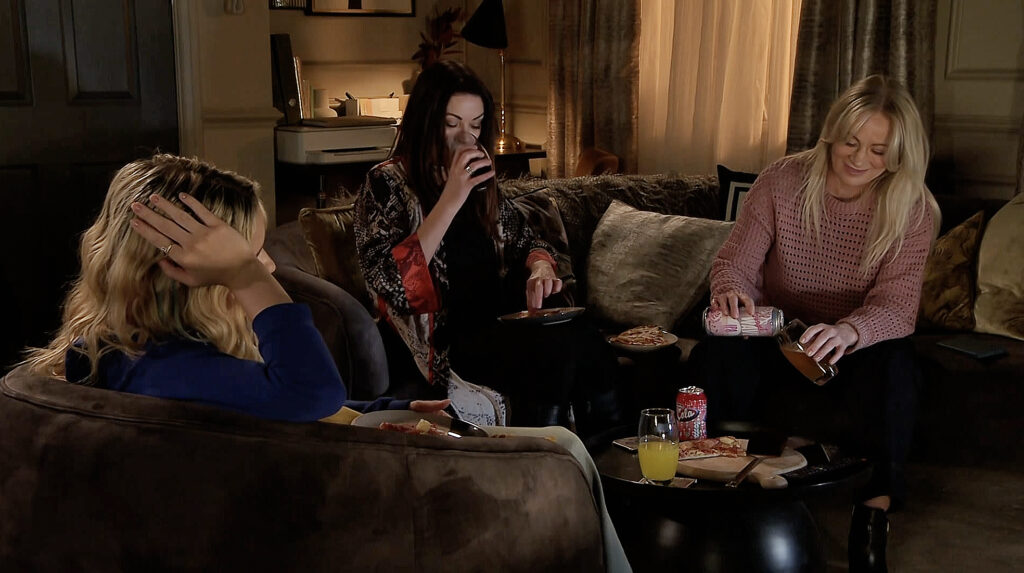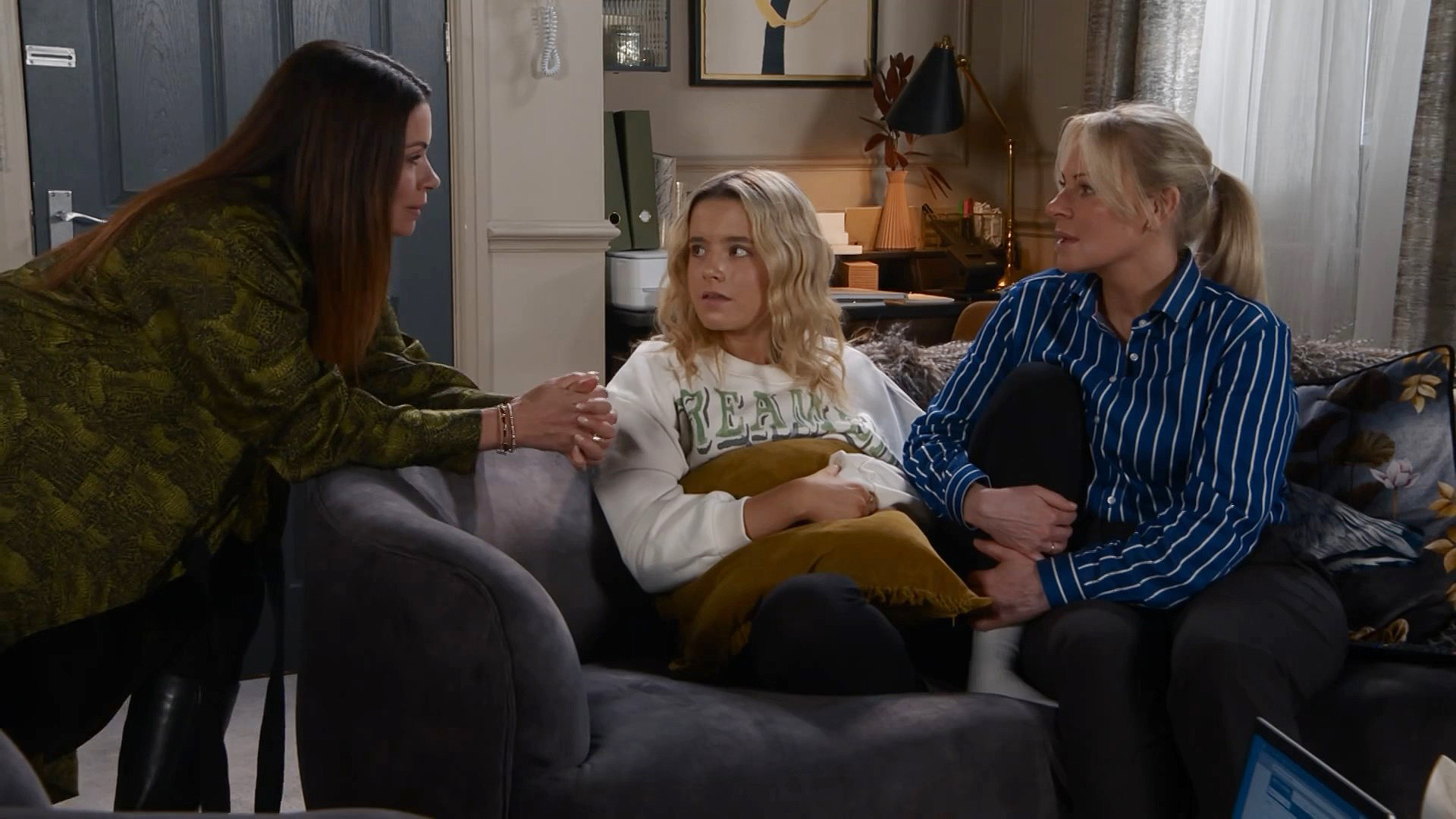Sarah draws on personal experience to explain why representation of people from all walks of life is so important.
In the ever-evolving landscape of television and film, the importance of representation cannot be overstated. As audiences, we look to screens not only for entertainment but also for reflections of our lives, identities, and experiences. When characters resonate with us, when they feel real, flawed, and familiar, it creates a connection that can be deeply affirming. Sometimes even life-changing. Two standout examples of this in recent British soap are the characters of Carla Connor and Lisa Swain. Their characters highlight the necessity of diverse, honest storytelling, particularly when it comes to topics like grief, sexuality, mental health, and the roles of women in modern society.

Carla Connor: Reinvention, resilience, and love later in life
Carla Connor, portrayed with characteristic strength and vulnerability by Alison King, has been a staple on the cobbles since 2006, and often depicted as a strong businesswoman with a sharp tongue and a haunted past. Over the years, she’s faced a litany of challenges – from traumatic assaults to struggles with mental health, from addiction to profound loss. Her journey has been anything but easy, and it is precisely that complexity that has endeared her to so many.
What makes Carla’s recent storyline especially significant is her late-in-life relationship with another woman. This was not framed as sensational or played for shock value, but rather as a natural, heartfelt development in her character’s ongoing evolution. For many viewers, particularly women coming to terms with their sexuality later in life, Carla’s experience was a groundbreaking moment of visibility. It quietly, but powerfully, conveyed that love does not come with an expiry date, and that self-discovery is not limited to youth.
Representation of LGBTQ+ characters on screen is still far from perfect, particularly when it comes to older characters. Too often, queer love stories are relegated to younger characters, as if personal growth ends after 30. Carla’s storyline challenges that. It tells viewers that it’s okay to change, to explore, and to embrace new parts of yourself, even after a lifetime of doing things a certain way. Alison King’s portrayal has made that journey believable and heartfelt, offering a narrative that many had never seen represented before.

Lisa Swain: A mirror for grief, single mothers and powerful women
Vicky Myers brings incredible depth to the role of Lisa Swain, a widow, single mother, police officer, and woman juggling the immense pressures of her personal and professional life. While television has long included police dramas and tough-as-nails detectives, Lisa stands out because she is not a caricature or a superhero. She is a woman surviving, sometimes barely, in a world that demands everything from her.
One of Lisa’s most poignant storylines involves the grief she experiences after losing her wife in the line of duty. This depiction was especially powerful because it didn’t gloss over the pain or turn it into a convenient subplot. Instead, viewers witnessed the emotional toll that loss can take, not just in tearful moments behind closed doors, but in the everyday struggle to keep going. From a personal perspective, this storyline felt raw and authentic. It reflected a reality many face: that life does not pause for grief, especially when you are a parent or in a demanding job. Watching Lisa try to hold herself and her family together, while clearly carrying immense sorrow, was a powerful and validating experience for those who’ve lived through similar pain.
Lisa’s role as a single mum in a male-dominated profession adds powerful depth to her character. Policing, like many uniformed careers, is still an environment where women often have to prove themselves repeatedly. Lisa represents those balancing demanding jobs with home life, often underappreciated and judged for wanting both a career and a family.
What makes Lisa’s story even more significant is her identity as a gay woman in that space. Her presence challenges stereotypes, showing that LGBTQ+ women belong in positions of authority and responsibility. Her sexuality is not her defining feature but a natural part of who she is – shown with honesty and respect.
Lisa’s character provides meaningful representation for single mothers, women in tough careers, and queer professionals alike. She shows that real strength often lies in simply showing up as your full self, every single day.

Why it all matters
Representation on screen is not just about demographics or diversity checklists, it’s about authenticity. It’s about telling stories that matter, that reflect the broad spectrum of human experience. When viewers see someone like Lisa Swain managing grief while balancing her role as a mother and professional, or someone like Carla Connor navigating love, identity, and trauma later in life, it sends a powerful message: you are not alone.
For single mothers, for widows, for women working in traditionally male spaces, for members of the LGBTQ+ community, and for anyone who’s faced personal transformation later in life, these characters are more than fictional, they are affirming. They give voice to people who are so often overlooked or stereotyped.
Thanks to actors like Vicky Myers and Alison King, these characters are portrayed with dignity, complexity, and empathy. Their stories show us that strength comes in many forms, whether it’s holding your family together through grief or finding the courage to live your truth after years of silence.
In a media landscape often dominated by glossy perfection or tired tropes, Lisa and Carla stand as reminders of what storytelling can achieve when it is grounded in reality and heart. Representation matters because people matter. And when we see characters who reflect our realities, struggles, and hopes, it doesn’t just make good television – it truly does make a difference.
As someone who has experienced the devastating loss of a partner, navigated the challenges of working in a male-dominated industry, and discovered love with someone of the same sex later in life, I understand just how powerful it is to see these stories reflected on screen. It’s not about ticking boxes or meeting quotas, it’s about feeling seen, understood, and valued. Characters like Lisa Swain and Carla Connor don’t just entertain; they represent real people with real lives. Their stories remind us that no matter what we’ve been through or when we find our truth, our experiences are valid, and we deserve to see ourselves in the stories that shape our culture.
Images copyright of ITV


